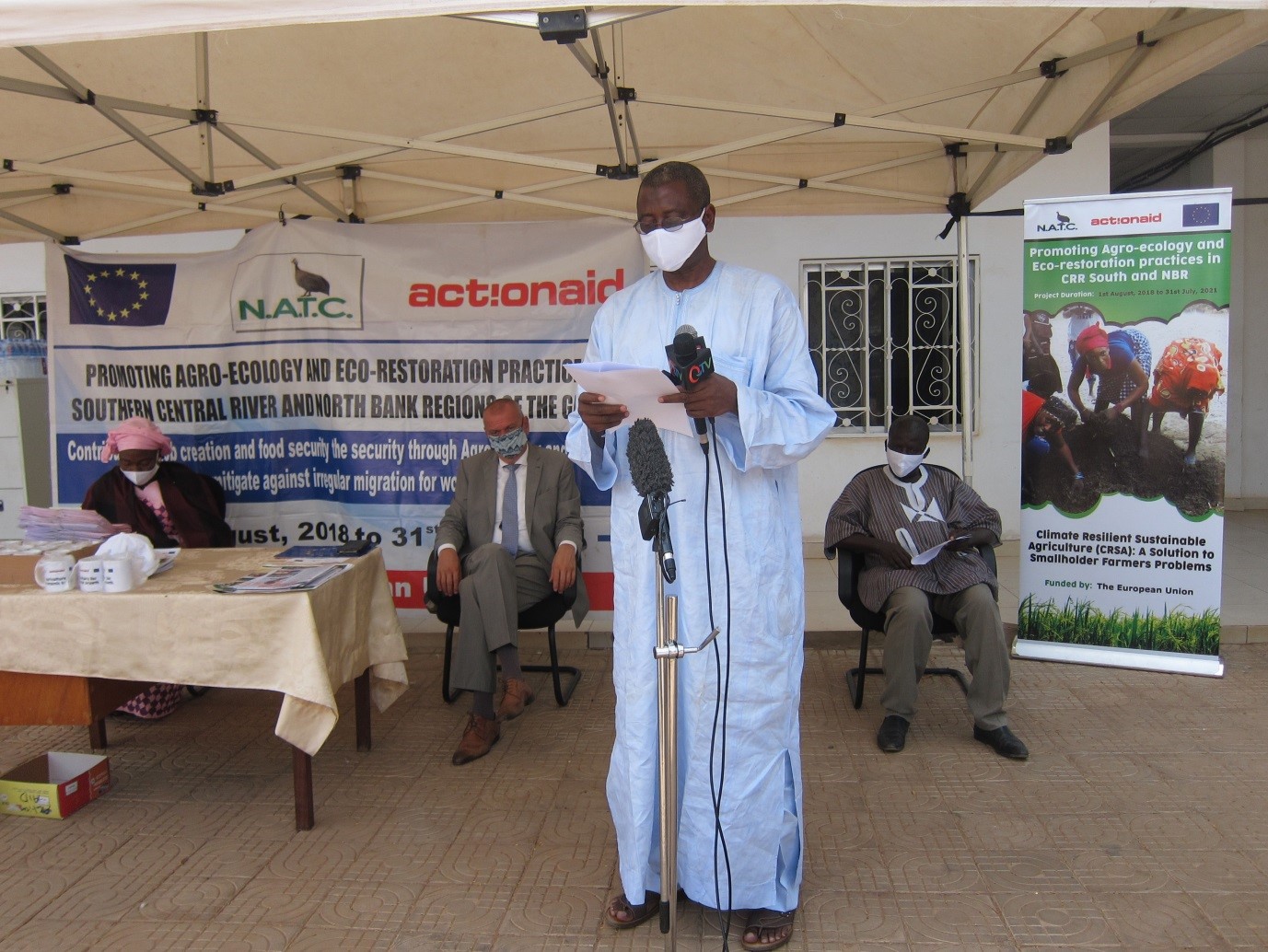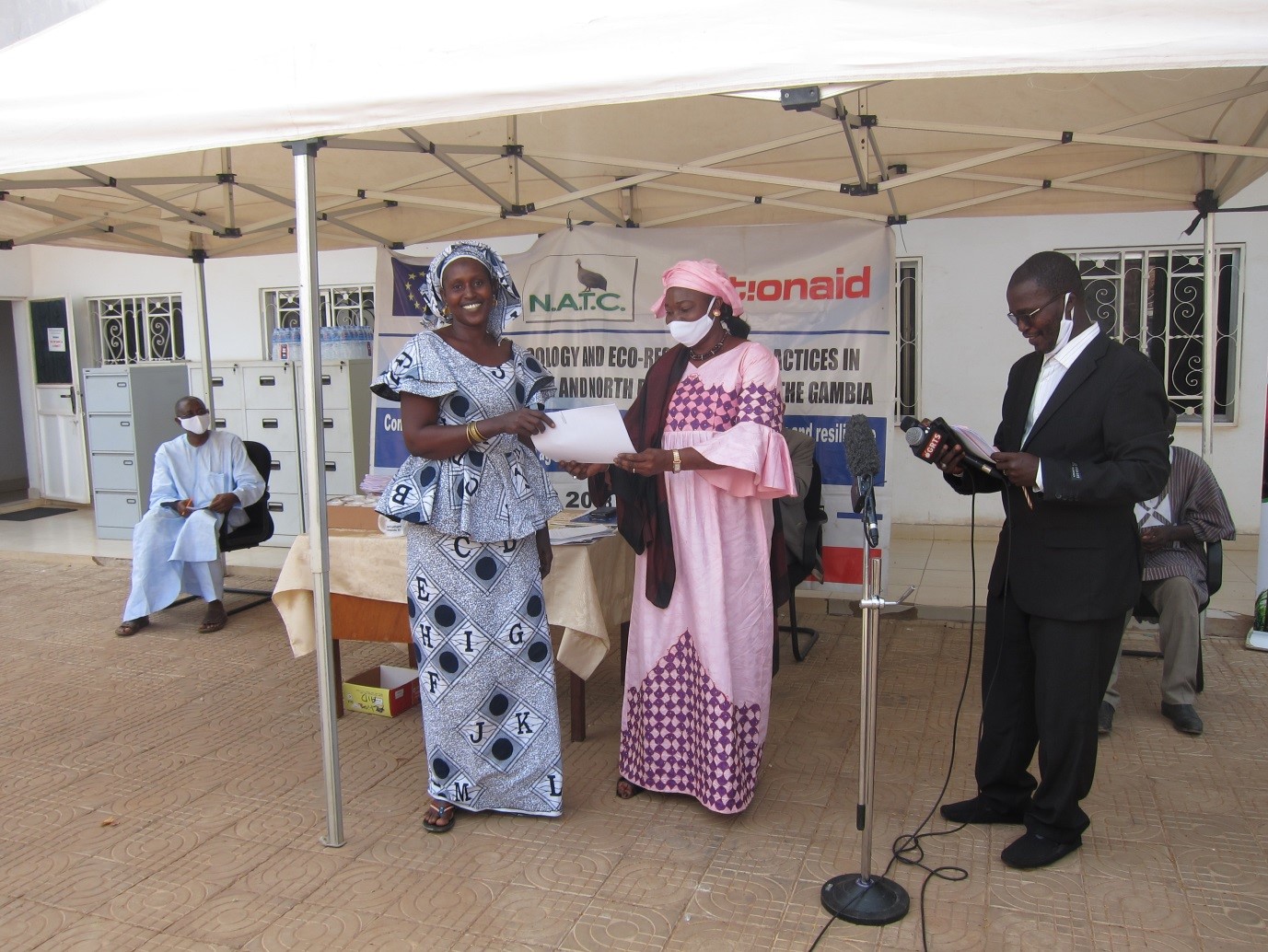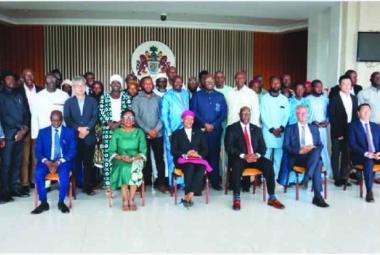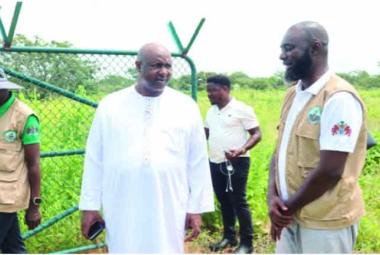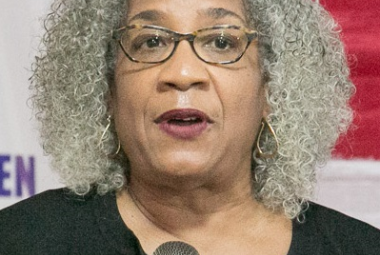By Kumba Leigh
With support from the European Union, ActionAid The Gambia in collaboration with Njawara Agriculture Training Centre on Wednesday, 1st July 2020, handed financial support to third party beneficiary farmers to promoting agro-ecology and eco-restoration practices in south, central, and north bank regions.
At the handing over ceremony, which took place at ActionAid The Gambia headquarters in Kanifing, officials said the initiative includes helping farmers from different communities to embark on poultry and small ruminant rearing, as income generation projects; thus, strengthen economic position of farmers; especially the women and youth.
Speaking at the event, Omar Badjie, Executive Director of ActionAid The Gambia, noted that the support will help build the resilience of farmers and enhance their adaptation and coping capacities. ‘‘It will assure people that they can be successful in The Gambia,’’ he added. He asserted that the economic independence of women is fundamental in their empowerment process, as it can build their confidence to take up key decision-making positions; including participation in political processes.
Badjie revealed that two key developmental challenges prompted ActionAid to approach the EU with a proposal for funding and these he outlined as: climate change, and migration. “It has been established that climate change has contributed to the rate of migration because it is a strong push-factor that makes lives extremely difficult in the rural areas,’’ he further remarked.
Highlighting the aims and objectives of the project, Mr Badjie said it is to contribute to job creation and food security for women and youth through agro-ecology and to strengthen the adaptation capabilities of women and youth and their organisations to be able to withstand shocks and impact of climate change through climate resilient sustainable agriculture.
On their achievements since the start of the project two years ago, he said they have supported 30 communities to establish seed and cereal banking schemes with 96 tons of assorted seeds and cereals, worth over 2.6 million dalasi, to reach over 1,200 smallholder farmers of whom 85% are women and youth. He added six seed stores were rehabilitated to stockpile the seeds and cereals collected. He said they have also raised 10,000 seedings of indigenous tree species for planting within the project villages to contribute to the recovery of lost biodiversity and help in environmental protection, established three demonstration farms worth over 5 million dalasi, and over 130 farmers were trained on climate resilient sustainable agriculture, 32 million dalasi was also used to support 100 smallholder farmers to buy farming implements and draught animals such as sine hoes, seeders and donkeys.
Furthermore, Badjie reported that they also given 350 improved cooking stoves to 350 households in the drive to curb deforestation by reducing dependency on forest for fuel.
Amie Fabureh, the minister of Agriculture said the project is aligned with their sector’s policies and strategies, the NDP (2018-2021) and SDGs especially about ending poverty and hunger and ensuring food security, and employment among others. She affirmed that the project supports an enabling environment and capacity development for sustainable, increased and diversified production for nutrition promotion in agriculture, livestock and aquaculture through enhanced value-chain for agriculture and natural resource commodities.
Minister Fabureh therefore assured of Gambia government’s commitment to enhancing production and productivity of the local farmers; much especially at this trying moment of Covid 19.
Atila Lajos, Ambassador European Union reminded that at the start of the year 2017, EU allocated 21.5 MEUR from the 11th European Development Fund to The Gambia for the programme, Agriculture for Economic Growth and Food Security, Nutrition to mitigate migration flows. He explained that the 1.2 billion Dalasi programme is self-contained and has three components: FAO’s Agriculture for Economic Growth, WFP’s Schools Meals and Disaster Risk Management, and NGOs support to the whole programme.

